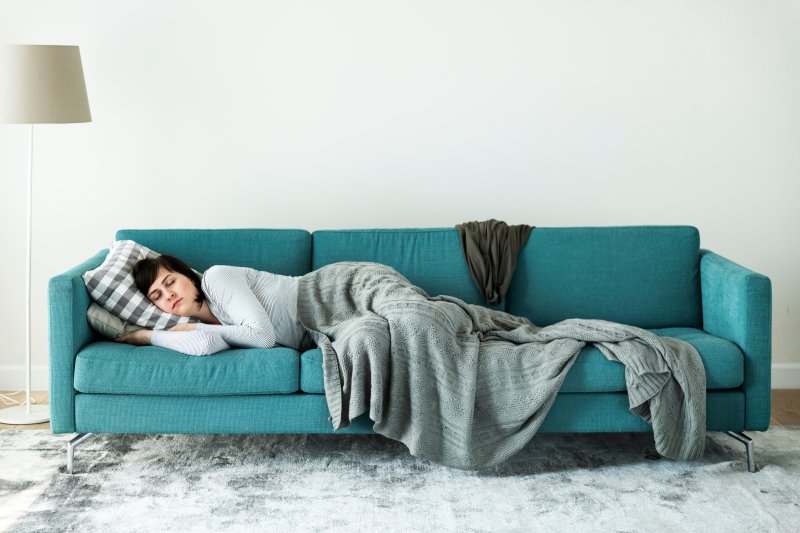
Are you the kind of person who enjoys taking a nap during the day? Lying on the couch and catching a few winks may sound harmless, but you may be unaware of the negative effects it can have on your sleep apnea treatment. Keep reading to discover why snoozing on the couch for a few hours may be sabotaging your nighttime rest.
The Bad News About Napping
The reason you take a nap is because you’re tired, right? When living with sleep apnea, daily fatigue is a common problem – one that can interfere with your personal and professional life. While a nap may sound like a great way to catch up on sleep, the real truth is that a 30-minute or hour-long “power nap” may be hurting you more than it’s helping you.
If you have sleep apnea, a nap can actually make it harder for you to get the rest you need at night. It can throw off your sleep schedule, which can lead to you spending time on your phone or engaging in other activities when you should be snoozing soundly in preparation for the next day.
How to Improve Nighttime Sleep to Avoid Naps
Although you may find it hard to give up your daytime naps, it’s important that you do if you want to start getting the kind of sleep your brain and body need.
When being treated for sleep apnea, quality nighttime rest is crucial, so making sure the stage is set for optimal sleep is imperative. To do this, you can:
- Use blackout curtains to keep your room dark and prevent light from filtering in and waking you up earlier than necessary.
- Change your sleep position, especially if you like lying on your back. By switching to your side, you reduce the chances that your throat muscles will collapse onto your airway.
- Keep a humidifier in your room so that the air and your mouth do not become dry – a problem that can amplify sleep apnea symptoms.
- Avoid alcohol before bed and give up unhealthy habits, like smoking, which can inhibit your breathing.
- Switch to an oral appliance if you find your CPAP to be intolerable. A customized mouthpiece can ensure greater comfort, easy use, and a more enjoyable sleep experience as opposed to dealing with an uncomfortable mask, bulky machinery, and loud air pressure.
Unless it’s absolutely necessary, try to avoid naps as much as you can. In doing so, you’ll attain the best quality sleep at night and be able to face each day well-rested and ready for what lies ahead.
About the Author
Do you suffer from sleep apnea? Dr. Shelley Shults is a board-certified registered nurse, general dentist, family nurse practitioner, and dental sleep medicine practitioner who wants to help. Leading a team of professionals at Powell Dental Sleep Solutions, she treats individuals who are struggling to get the rest they need to function. If naps are becoming a daily occurrence, it may be time to contact us at (614) 681-8593 to find out how we can help provide the treatment you need to start getting better sleep at night.
